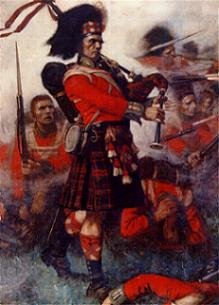Alfred Henry Appleyard; Fighting on the home front
Born in 1872, Alfred Henry was the oldest son of the oldest
son, Alfred Henry who, following the early death of his father Peter, had taken
on the patriarchal role of the family.
When war was declared, Alfred was 42, considerably older
than many enlisting, however, this didn’t stop him from joining his brothers and cousins who had also enlisted to fight for their country.
Married to Bridget, with four children, in
December 1915, the bridge builder filled out his first batch of enlistment
forms.
Dropping several years off his age, Alfred’s enlistment forms
state that he was 35 years and 5 months.
Sent to the Military Camp at Royal Park, he would be assigned to the 24th
Battalion, forming part of the 6th Brigade and assigned to the 2nd
division.
Three weeks later Alfred would be transferred to the
Headquarters Company and on June 9, to the 21st Battalion, getting
closer to being sent overseas. But then
on June 30, 1916, Alfred would be discharged as medically unfit after struggling
with rheumatism and sciatica.
It would appear that although unfit to be sent abroad, the
AIF would encourage him to re-enlist with Alfred receiving approval to serve
after being re-examined, being fit for ‘home service’ as part of the Military
Police His second enlistment was signed
off on July 10, 1916 with the patriotic man based at Royal Park but, in
February 1917, Alfred’s health would once again get in the way of him serving
his country and his records would be marked SOI, or, Staff Officer Invalided.
Medical records show that Alfred had ruptured a tendon in
his leg while chasing an escapee from the detention compound in Royal
Park. After this he would spend a month
at the hospital in Caulfield before being discharged, this time as a result of
cardiac arrhythmia.
Advised to apply for the war pension, and with his discharge
papers signed on May 30, 1917 this was not Alfred’s last hoorah to be a part of
Australia’s war efforts.
On the 1st June 1917, Alfred would enlist for a
third time, now listing his age as 37 years when he was actually 45. Alfred must have known the right people as
included with his enlistment forms was a letter from a Lieutenant Colonel with
the Military Police for the 3rd Military District.
“The Recruiting Officer, Town Hall.
Mr Alfred Henry Appleyard, a rejected volunteer, is
desirous of enlisting for Home Service.
If on medical examination, he is found fit for Home
Service I have a vacancy on my strength if he is found fit for police duty.”
The next two years saw Alfred do his duty, working with the
Military Police in Melbourne, based at the Town Hall. However, on January 31, 1919, just over 2
months after the war ended, Alfred was reported for being ‘under the influence
of liquor whilst on duty’ and threatening a Non-Commissioned Officer.
In January 1919 the Victorian Government had declared that
the state was in quarantine with the Spanish Flue, forcing the closure of
theatres and schools. With 4 children
and his wife Bridget in Traralgon, chances are that Alfred simply wanted to go
home. He had been based in Melbourne
during his time in service but maybe, with the world battling an invisible
enemy, Alfred felt it was time that he go back to his family.
On February 3, 1919, Alfred would be discharged from
G.M.Police, ‘Services no longer required.”
Alfred Henry Appleyard
Born: July 20, 1872, Alberton, Victoria
Died: August 1, 1949, Heidelberg, Victoria
Relationship with Peter: Grandson
Born: July 20, 1872, Alberton, Victoria
Died: August 1, 1949, Heidelberg, Victoria
Relationship with Peter: Grandson
Image: The headstone at Alfred's grave located in the Cheltenham Cemetery, Melbourne, Victoria.
Photographer: Unknown
Source: Billion Graves

.jpg)


Comments
Post a Comment